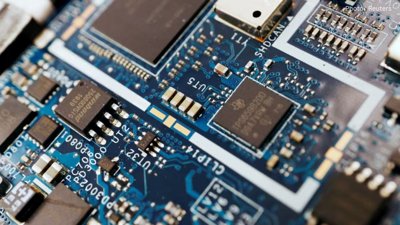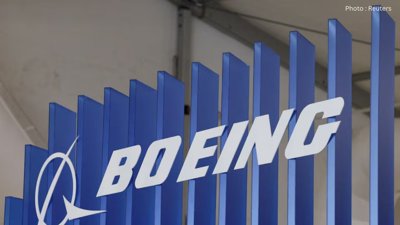
Post by : Ramanpreet Kaur
Photo:Reuters
The city of Trivandrum has become home to a groundbreaking project that could change the way cars and bikes are built in the future. A new cloud-based Hardware-in-the-Loop (HIL) testing centre has been inaugurated through a partnership between a leading Indian design and technology company and Suzuki Motor Corporation. This centre is designed to transform how vehicles are developed, tested, and brought to the market.
Unlike traditional testing grounds filled with real cars, heavy machinery, and test tracks, this hub works mostly in the digital space. Engineers no longer need to depend only on physical prototypes to check if a vehicle’s systems are functioning properly. Instead, they can now build virtual models of vehicles, run thousands of tests on them using cloud systems, and fix problems long before the first real prototype is even built.
What Exactly is Cloud-Based HIL Testing?
To understand the importance of this centre, it helps to know what Hardware-in-the-Loop testing is. Normally, when a car or bike is developed, its systems—such as the brakes, engine, or electric control units—are tested in real-world conditions. That means a prototype has to be made, fitted with all parts, and then tested repeatedly. This takes a lot of time and costs huge amounts of money.
With HIL testing, engineers can connect some physical parts (like sensors or controllers) to a computer system that simulates the entire vehicle and its environment. For example, if they want to test how the brakes respond on a wet road, they don’t need an actual car on a rainy track. The computer can create that situation, and the physical brake controller can be tested against it.
Now, by moving this entire process to the cloud, things become even faster and more flexible. Engineers sitting in different countries can access the same virtual vehicle through the internet, run tests, and share results instantly. That is why this centre is such a huge deal—it combines the power of simulation, cloud computing, and real engineering in one place.
Why Does This Matter for Suzuki and the Auto Industry?
For Suzuki, one of the world’s biggest car and motorcycle makers, this hub gives a major boost in the race toward Software-Defined Vehicles (SDVs). In the coming years, vehicles will rely more on software than on mechanical changes. Features like advanced driver assistance, safety warnings, electric power management, and even entertainment systems will all depend heavily on software.
Instead of building a new car every time there’s an upgrade, companies will simply release software updates, much like updates on a smartphone. To make this possible, carmakers need advanced testing facilities where software can be checked thoroughly and safely. This new centre provides exactly that.
Another big advantage is speed. Normally, building and testing prototypes can take months or even years. With virtual testing, Suzuki can shorten this cycle, fix problems earlier, and launch vehicles faster. In a highly competitive market, where electric vehicles and smart cars are growing rapidly, saving time is just as important as saving money.
Environmental and Cost Benefits
The auto industry has long been criticized for wasting resources during the development stage. Building multiple test vehicles, using raw materials, and consuming energy in test tracks create a heavy environmental footprint.
By shifting much of this process into the cloud, Suzuki and its partners can significantly reduce the number of physical prototypes needed. This means fewer materials used, less waste created, and lower energy consumption. It also helps in cutting costs, which can eventually make future vehicles more affordable for customers.
This centre also supports the global push for sustainable manufacturing. Around the world, automakers are under pressure to reduce carbon emissions, not only in the vehicles they sell but also in how those vehicles are made. Trivandrum’s new hub aligns with this goal by promoting smarter, greener methods of development.
A Hub for Global Collaboration
Another powerful feature of this cloud-based centre is that it allows global teamwork in real time. Engineers in India, Japan, Europe, or any other country can work together on the same project without having to travel.
For example, a software engineer in Bengaluru might write a new safety program, a designer in Tokyo might create a new dashboard layout, and a test engineer in Europe might run simulations—all linked through the Trivandrum centre. This seamless collaboration not only saves time but also ensures that different perspectives and expertise are combined to create better vehicles.
Why Trivandrum?
The choice of Trivandrum as the location for this advanced facility is not random. The city has been building a reputation as a growing hub for technology, research, and engineering. It has a skilled workforce, modern infrastructure, and strong support for innovation.
By setting up the centre here, Suzuki and its Indian partner are tapping into local talent while also strengthening India’s role in the global automobile industry. It shows confidence in India’s ability to support cutting-edge automotive research and highlights the country’s growing importance in the world’s transport technology sector.
What Does the Future Look Like?
Industry experts believe this is just the beginning. As more companies move toward cloud-based vehicle development, we could see major changes in how cars and bikes are built and sold. Vehicles will reach customers faster, upgrades will be easier, and safety standards will improve.
This shift also prepares the auto industry for the rise of electric and autonomous vehicles. Both these categories depend heavily on software, sensors, and electronic systems. Centres like the one in Trivandrum will be key in testing these advanced technologies before they hit the roads.
In the long run, this could also change how customers see their vehicles. Cars may become more like “smart devices on wheels,” capable of receiving updates, improving performance, and adapting to new conditions without needing to be replaced.
Cloud testing










Advances in Aerospace Technology and Commercial Aviation Recovery
Insights into breakthrough aerospace technologies and commercial aviation’s recovery amid 2025 chall

Defense Modernization and Strategic Spending Trends
Explore key trends in global defense modernization and strategic military spending shaping 2025 secu

Tens of Thousands Protest in Serbia on Anniversary of Deadly Roof Collapse
Tens of thousands in Novi Sad mark a year since a deadly station roof collapse that killed 16, prote

Canada PM Carney Apologizes to Trump Over Controversial Reagan Anti-Tariff Ad
Canadian PM Mark Carney apologized to President Trump over an Ontario anti-tariff ad quoting Reagan,

The ad that stirred a hornets nest, and made Canadian PM Carney say sorry to Trump
Canadian PM Mark Carney apologizes to US President Trump after a tariff-related ad causes diplomatic

Bengaluru-Mumbai Superfast Train Approved After 30-Year Wait
Railways approves new superfast train connecting Bengaluru and Mumbai, ending a 30-year demand, easi